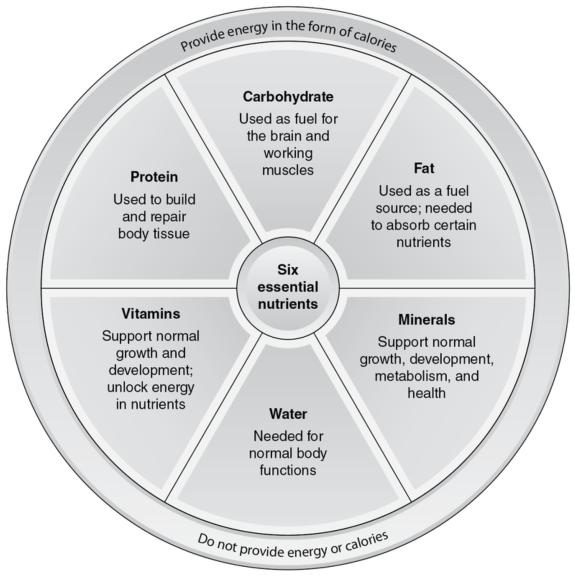Day-to-day nutrition for healthy growth
This is an excerpt from Fueling Young Athletes by Heather Mangieri.
Because I counsel young athletes, I work with a lot of parents and families. Most parents have very specific questions about fueling for sports. They want to know what to eat before an event, how much to drink during a game, and what the best meal is for recovery. Although these are all important questions that are addressed in this book, the foods that are eaten day to day play a much larger role in health and athletic performance. Adequate day-to-day nutrition is what supports healthy growth and development, boosts the immune system, and works to heal sport injuries.

Adequate day to day nutrition is the first consideration in growing a healthy athlete.
BananaStock/Getty Images
This book begins with a discussion of the basics, because a solid diet foundation needs to be the number one priority. Athletes are unlikely to be the best they can be if they are sick or injured. A healthy, injury-free athlete equals a winning athlete. Just as athletes who participate in different sports have different energy requirements, growing children have different energy requirements from those of adults. Daily nutrition requirements vary based on developmental age, sex, body type, and body composition. Adding in a recovery meal, for example, when athletes' day-to-day nutritional requirements have not been met will do little to help them meet their athletic goals. Once daily nutritional needs are met, then the extra foods and fluids needed to support sport training become the focus.
Nutrition Basics
The body gets its energy from food, which should provide a variety of vitamins and minerals. Unfortunately, that is not always the case. Some foods provide the calories needed for growth but do not provide the nutrients needed for supporting development. The result is usually an overweight yet undernourished body.
The best food supports the growth, development, and maintenance of muscles, bones, organs, skin, and blood to cleanse, oxygenate, and nourish all parts of the body. The day-to-day diet should provide adequate amounts of all six essential nutrients that the body requires to function properly: water, carbohydrate, protein, fat, vitamins, and minerals. Athletes should understand the role and function of each of the essential nutrients, and they should have a general understanding of how much they need of each. See figure 2.1 for each nutrient's role.

The six essential nutrients.
The essential nutrients are divided into three categories: macronutrients, micronutrients, and water. The macronutrients (carbohydrate, protein, and fat) supply the energy needed to fuel working muscles. For that reason, they are referred to as the energy-yielding nutrients. That energy is measured in calories. Vitamins and minerals (also called micronutrients) do not supply energy, but they are vital to life and needed for normal growth and development. Finally, water does not supply energy, but it is a component of all cells and is vital for life.
In addition to providing the nutrients vital for life, foods provide phytochemicals (i.e., compounds that give the foods classified as superfoods their superpowers). Phytochemicals are believed to help protect against certain diseases. Aside from the potential health benefits, many phytonutrients may help reduce inflammation, thereby boosting immune function and improving focus and concentration, all things that help athletes perform well.
Learn more about Fueling Young Athletes.
More Excerpts From Fueling Young AthletesSHOP

Get the latest insights with regular newsletters, plus periodic product information and special insider offers.
JOIN NOW
Latest Posts
- Women in sport and sport marketing
- Sport’s role in the climate crisis
- What international competencies do sport managers need?
- Using artificial intelligence in athletic training
- Using the evidence pyramid to assess athletic training research
- How can athletic trainers ask a clinically relevant question using PICO?


